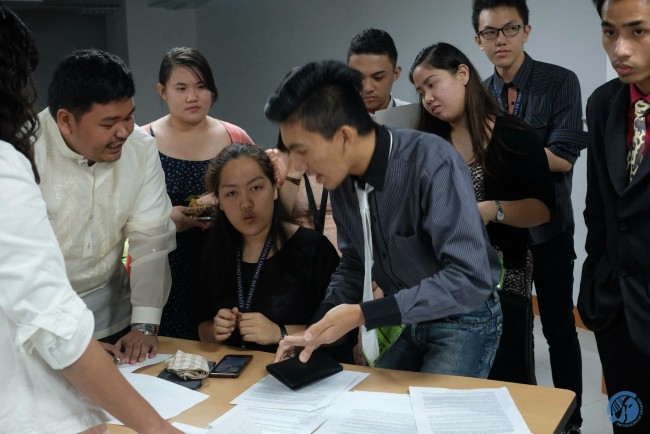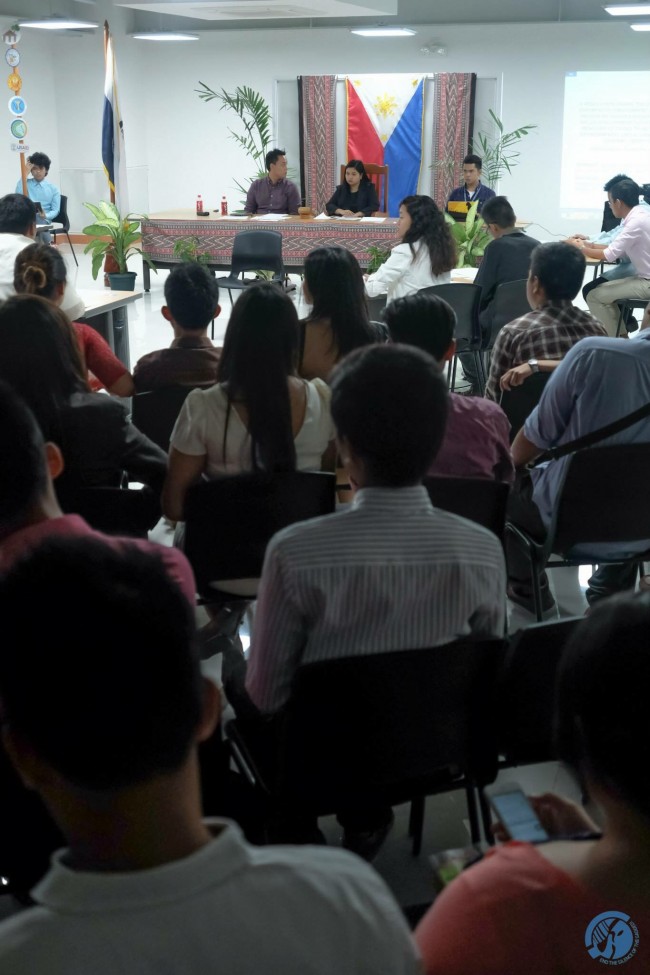Out of 178 applicants, 99 were selected as delegates to represent the youth congress for the 1st Ateneo EcoCongress, which was meant to rebuild the purpose of the youth in nation building, as what partipant Cholo Quidangen, a third year Accountancy student, believed.
The EcoCongress, composed of the young delegates, formed committees which were tasked to formulate resolutions sectioned to university level, city level and national level aiding the environment, specifically its ecology.
Related article: 1st EcoCongress ‘forges toward a better home’
Out of 11 resolutions proposed, only three were denied while the remaining proposals were successfully approved. The resolutions were all carefully examined and deliberated, before proceeding to the votation. The youth congress showed spirit as all actively participated from the justification, to the debate and amendments up to the decision-making whether to pass or deny.
The first committee to present their resolution was the Committee on Environment and Business and Management, calling for the Davao City government and the Davao City Environment Resources Office (CENRO) to require public utility vehicle operators trash receptacles for biodegradable and non-biodegradable waste inside public utility vehicles, which was denied and moved for a motion for reconsideration only to be denied again, with 4 votes of approval against 6.
The Committee on Disaster Risk Management proposed a resolution that the Ateneo de Davao University should have a waste management penalty system, which targets to penalize students who inappropriately throw their garbage, which was approved unanimously by the 10 representatives of each committee.
A resolution urging the Department of Education (DepEd), Department of Environment and Natural Resources (DENR), Commission on Higher Education (CHED), Technical Education and Skills Development Authority (TESDA), and the Department of Interior and Local Government (DILG), to institutionalize the formation of an environmental unit for each educational institution, both private and public, in the Philippines and in Davao City (both are separate resolutions), was proposed by the Committee on Environment and Social Sciences which later on passed still with a unanimous vote from the representatives.
Garnering 10 votes out of 10, the Committee on Environment and Science, Health and Technology passed a resolution requesting the city council to amend provisions of the City Ordinance No. 0361-10, Series of 2010, otherwise known as the Davao City Ecological Solid Waste Management Ordinance of 2009, which sought to require and encourage the use of paper bags or biodegradable bags instead of plastic bags.
The Committee on Environment and Engineering and Architecture successfully passed a resolution minimizing plastic wastes and the conversion to plastic chairs that shall be known as “Plastic Project ni Tinyong”. Its main goal is to convert to plastic chairs the waste produced by the university, and to be donated to educational institutions, among others.
The Committee on Environment and Business and Management effectively passed a resolution suggesting the Student Executive Council (SEC) of the nine university divisions, schools and clusters and the Campus Club Organizations (CCO) should coordinate with the SAMAHAN which will store reusable props and make these available for the use of the university, and to create the SAMAHAN Property Office for the purpose thereof.
A resolution proposed by the Committee on Environment and Social Sciences was passed, urging the AdDU Ecoteneo Program to review, restructure and reinforce the “Clean As You Go” (CLAYGO) campaign in the university’s college and graduate school units
On the other hand, resolutions proposed by the Committee on Environment and the Engineering and Architecture were both denied. The first being the conservation and proper utilization of water through a rainwater harvesting system and sustainable drainage system in AdDU which intended to use potable water for potable uses and non-potable water for non-potable uses, and the second being the electricity through wind energy gathered by travelling vehicles.
A resolution by the Committee on Environment and Science, Health and Technology recommending the city council in association with the Department of Energy (DOE) and the Department of Transportation and Communication (DOTC) to implement programs to lessen the use of commercial energy in Davao was passed.
SAMAHAN Secretary-General Amara Abrina, one of the delegates of the Eco Congress, said she was astounded with how countless the ideas on preserving and maintaining the environment can be conceptualized by each committee could be.
The movement of the EcoCongress, according to Abrina, was to reach out and involve the youth to participate in a congress for “our common home,” for the ones who would succeed the older generations in taking over the responsibility of living in the world.

